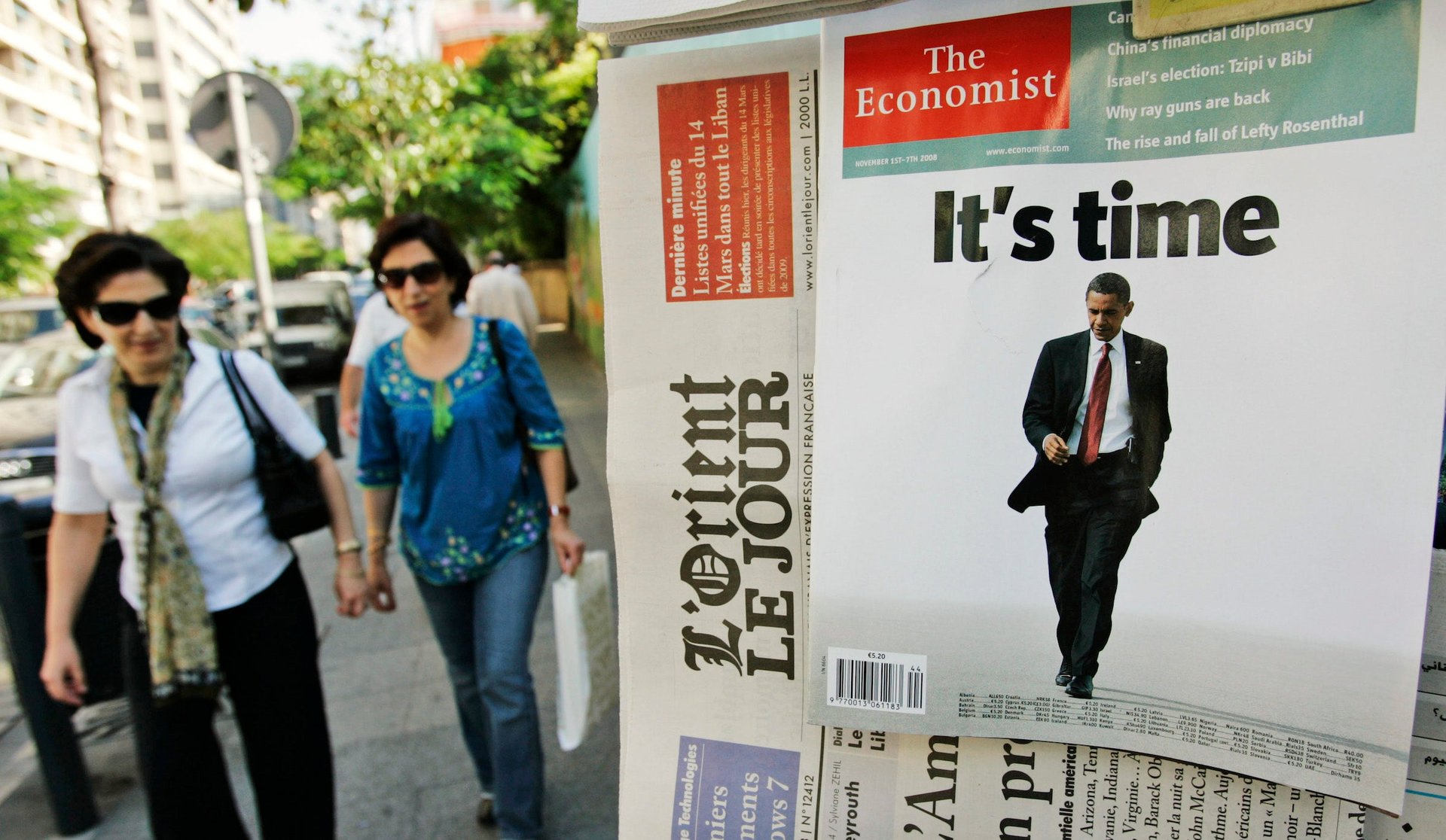The Economist is being sold to rich Italian investors, and to The Economist itself
The Economist, a jewel of the business media industry, is worth more than £950 million ($1.5 billion). We now know this because a 50% stake in the closely held weekly is changing hands for £469 million.


The Economist, a jewel of the business media industry, is worth more than £950 million ($1.5 billion). We now know this because a 50% stake in the closely held weekly is changing hands for £469 million.
The seller is Pearson, which acquired the stake in The Economist in 1957 when it bought the Financial Times. Pearson sold the Financial Times to Japanese media group Nikkei for £844 million last month, the first step in focusing itself purely on the education business. Today’s transaction completes the transition.
The main buyer is Exor, the investment firm of Italy’s Agnelli family, which controls automaker Fiat Chrysler and has interests in commercial real estate, banking, and the professional soccer club Juventus. Exor already holds around 5% of The Economist’s shares, and its chairman, John Elkann, is also a non-executive director at the media group. Exor will pay £287 million to become The Economist’s largest shareholder, with a 43% stake in the group.
The remainder of Pearson’s shares will be bought back by The Economist Group itself, and held in its treasury “as a future source of equity that can support the growth of the company,” the group said. The purchase will be funded by the sale of its headquarters in London’s Mayfair neighborhood, a Brutalist masterwork built in the 1960s. In March, The Economist put the open-market value of its headquarters at £100 million (pdf, p. 19).
The share buyback will boost the stakes of existing investors, giving the group’s second-largest shareholder, the Rothschild family, around a quarter of the company’s shares, up from a fifth today. The transaction is expected to take place by the end of the year, provided that more than 75% of The Economist Group’s shareholders approve it. (Disclosure: I still hold a small number of shares obtained when I worked there.)
The rich valuation, which includes £17 million in debt, reflects the brand’s cachet and ability to consistently generate profits from its circulation of 1.6 million. Around a third of the group’s sales and profits also come from the combination of the Economist Intelligence Unit, a research group, and CQ Roll Call, an American political news outlet.
The Economist’s owners don’t get much control in return for their shareholdings, making the eagerness of existing shareholders to raise their stakes all the more noteworthy. Indeed, the sale of Pearson’s stake will be accompanied by an amendment to the group’s already byzantine ownership structure to put a 20% cap on the voting rights of any individual shareholder, regardless of the size of their stake.
Multiple share classes and a powerful committee of trustees with the sole power to appoint the magazine’s editor and the company’s chairman have long insulated the magazine from outside interference (and made it hard to put a proper market value on the company). This will remain the case after the ownership reshuffle, as emphasized by a letter of support from the past five editors of the title (pdf).
For what it’s worth, the magazine’s editorial line is less than enthusiastic about listed companies deploying similar obstacles to shareholder control. But in The Economist’s case, the goal is to restrict the influence that any one owner can have on the company, and make any potential meddling with the magazine’s content completely out of the question. The magazine has explained at length the dangers of insiders exerting outsized influence over firms despite small shareholdings—a certain Mr. Elkann at Fiat is cited as a “vivid illustration” of the practice.